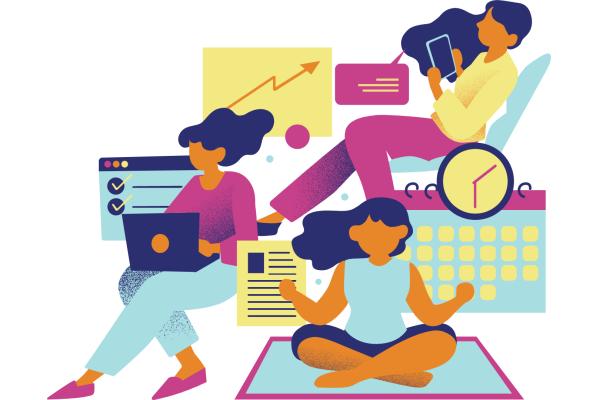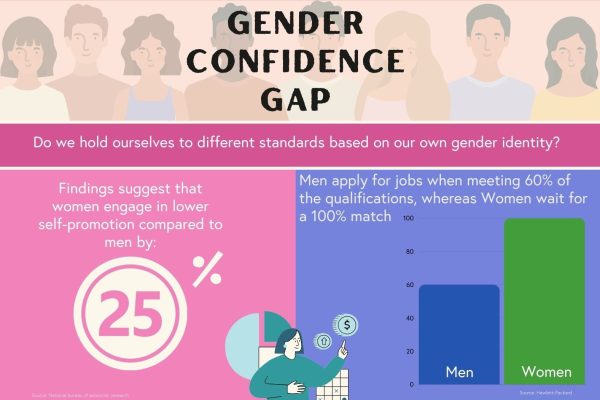Developing ‘Human Skills’ among the Millennial professional services workforce
6 min read
Millennials are different. They have their own unique attitudes and values sets as result of the socio-economic and technological environment within which they have been raised. Moreover, for reasons we have previously discussed, the Millennial generation are entering the world of work lacking certain key human skills and behaviours that are critically important to succeed in the 21st Century business environment.
As Jim Moffatt, Chairman and CEO of Deloitte Consulting LLP recently said:
“Millennials, in particular, want to be engaged in a very, very different way. They want to see the commitment to invest in them. They want to be exposed to the most leading-edge techniques and analytics.”[i]
Millennials want to learn and they want to work hard. They just want to learn and work differently to previous generations and they want to see commitment from their employer. In return, employers will gain a loyal, committed and engaged employee, in it for the long term.
Consequently, there is a need to specifically define how key human skills and behaviours are learned, practiced, refined and developed among the Millennial workforce. This article provides a potential framework for organisations to follow.
How might professional services firms develop ‘human’ behaviours and skills?
In order to bring about real change in the ‘human’ skills and behaviours of their Millennial employees, organisations must understand that it is thoughts, feelings and beliefs that drive behaviour. Only by carrying out activities that alter the mindsets of their employees will real improvement in human skills occur.
The McKinsey Quarterly of June 2003, featured an article by Lawson and Price entitled “The Psychology of Change Management” which detailed four conditions required for changing mindsets that will lead to behaviour change.[ii]
Adapting these four building blocks provide a neat framework for developing the key human behaviours and skills required of Millennials to succeed in the business world.
1. Capability Building – learning and refining the skills required
The first step for organisations is to ensure infrastructure and mechanisms are in place for Millennial employees to learn, practice, develop and then refine the human skills required to succeed in business.
To begin, firms need to analyse individual skills and capabilities gaps among their Millennial workforce and then put in a learning and development plan that overtly demonstrates commitment to that employee and highlights career growth opportunities and a promotion plan should those skills and behaviours be improved.
Firms should consider establishing a specialist corporate university or academy to develop the specialist human skills and behaviours required to succeed in their specific industry. A recent survey found that while 56% of firms believe Millennials need specialised leadership development programmes, only 15% currently offer such programmes.[iii]
Capability Building – Putting the theory into practice:
Consider how Millennials want to learn, particularly regarding the use of technology in a ‘blended learning’ system. Blended learning might include: classroom learning, experiential programmes, online, gamification and e-learning systems. Crucially, there should also be room for on-going practice and refinement of the new tools and strategies after the ‘learning event’ and ‘on-the-job’ follow up application, coaching and modelling.
2. A Compelling Story – a purpose to believe in
Employees will only change their mindsets if they can see the point of change and agree with it, which has interesting implications when considering the learning and development needs of the Millennial generation. They want ‘meaning’ at work. They seek a “higher purpose” and a “reason for being”. That is, Millennials want autonomy, self-determination and to know their work is making a difference. They want their work to create a better society and improve their clients’ lives. Importantly, they also want to learn and improve themselves.
Employers are more attractive if they have a clear ‘social purpose’ and can demonstrate how developing human skills and behaviours will improve both the individual’s career prospects and also help them achieve their altruistic goals of improving the wellbeing of its employees, customers and society as a whole. By giving Millennials a compelling story they can believe in and take ownership of, which is also compatible with their unique attitudes and values, organisations can expect high engagement levels and unleash the energy and potential of this ambitious and creative generation.
A Compelling Story – Putting the theory into practice:
Demonstrate commitment to your workforce through the development of a “career skills” development programme. Give your Millennials a story they can believe in. Help them to understand how developing ‘human’ skills and behaviours will not only aid their future career ambitions but also their clients and society as a whole.
3. Consistent Role Modelling – coaching and modelling of the right behaviours by mentors
In order for Millennials to learn the required human skills, they must be exposed to “significant other” role models (those in a position of influence) who “walk the talk” and are able to coach them in the right behaviours.
Recent studies confirm that Millennials want to be coached at work; they want a mentor; personal interaction and to view their manager as a ‘friend’ rather than a ‘boss’.
The Harvard Business Review article Make Yourself an Expert[iv] provides a framework for ‘learning from deep smarts’ that could be followed by organisations for their Millennial employees. The article suggests a process called OPPTY: Observation, Practice, Partnering and joint problem solving, and Taking responsibilitY.
Interestingly, the article suggests that both the ‘Deep expert’ and the junior employee should learn from each other. This notion is particularly true when considering the Millennial generation and their more experienced colleagues. In some areas it has been found that Millennials are actually more knowledgeable, such as technology and social media. Deloitte have previously called this phenomenon the “Reverse accumulation of Knowledge.”[v]
Although there is great potential for collaborative learning between generations, understandably this concept might be a little harder for more experienced colleagues to accept, especially in a professional services culture.
However, more experienced colleagues need to accept that it is their responsibility to model the appropriate behaviours for junior employees to follow if behavioural change is to be embraced and embedded. A recent survey of all our programme participants in 2014-15 found a majority of respondents believe that those with authority to set goals and objectives need to move away from an ‘activity-based’ mindset focused on metrics and instant results and move towards company-wide values that encourage peer-to-peer idea sharing, communication of positive stories and role modeling.[vi]
Consistent Role Modelling – Putting the theory into practice:
Millennials want to be inspired by their managers, so organisations must surround them with great people who will act as mentors and are willing to share their knowledge and demonstrate good examples of ‘human’ skills and behaviours. The OPPTY model provides a good template for companies to follow.
Organisations should not lose sight of the unique dynamics of the Millennial generation compared to older colleagues when developing a mentor programme. In particular, the Millennials’ willingness to question authority and ask ‘Why?’ and their belief that power does not automatically come from a job title but from knowledge, experience and demonstrating the organisations core values in practice.
4. Reinforcement Systems – structures, management, operational processes and measurement procedures that promote and reward the use of the right skills and behaviours
The final building block is for organisations to ensure that they put in place ‘reinforcement systems’ that are adapted to the Millennial workforce and reward and encourage the use of ‘human’ behaviours.
Reinforcement systems include feedback; appraisals; coaching and providing opportunities for Millennials to practice newly acquired skills on an on-going basis in a live business environment.
In recent times, reinforcement systems have been changing, particularly with regards to performance management, feedback and appraisals.
Once again, organisations should consider the unique values of the Millennial generation who do not want top/down managerial direction but on-going, individual personal development. Organisations who allow managers to impose an authoritarian stance through strict rules and a ‘process driven’ approach risk ‘killing off’ their adventurous Millennials.[vii]
Recent neuroscience has shown that traditional performance management systems often triggers disengagement, and constricts openness to creativity and growth.[viii]
Interestingly, several professional services firms (Accenture, Deloitte, Microsoft) appear to have taken these views on board and have started to remove formal appraisal systems and replace them with regular, fluid evaluation throughout the year.
Reinforcement Systems – Putting the theory into practice:
Organisations should not just tell Millennials what to do but help them achieve all that they are capable of doing and being.[ix] On-going, honest, personal feedback, from a manager who has their employee’s best interests at heart is likely to create an energised, creative and loyal Millennial workforce.
The final Point of View in our Special Report: Millennials in Professional Services examines whether a ‘traditional’ professional services firm’s culture ever be compatible with the attitudes and expectations of Millennials?
Millennials in Professional Services Special Report Series:

Part 1: Who are Millennials and why should professional services firms care?
Part 2: The Millennials’ Skills Gap – so what, why and what to do about it?
Part 3: Defining a professional services career skillset for Millennials
Part 4: Developing ‘Human Skills’ among the Millennial professional services workforce
References
[i]Lillian Cunningham, “Are there too many consultants in the world?”,Washington Post, 14th November 2014
[ii]Emily Lawson and Colin Price, “The Psychology of Change Management” McKinsey Quarterly June 2003
[iii]Lorrie Lykins and Ann Pace, “Mastering Millennial Leadership Development,” T+D – American Society for Training & Development, May 2013 p.42-45
[iv]Dorothy Leonard, Gavin Barton & Michelle Barton, “Make Yourself an Expert” Harvard Business Review, April 2013
[v]“Who are the Millennials?” – Deloitte
[vi]Key skills and behaviour change in professional services – an industry snapshot 2014-15, PSfPS Participant Survey 2014-15, September 2015
[vii]Lisa Illingworth, “The Secret to Leading Millennials” Finweek, 4th December 2014 p.40
[viii] David Rock, Josh Davis & Beth Jones, “Kill Your Performance Ratings” Strategy+Business 8th August 2014, Autumn 2014, Issue 76
[ix] Karie Willyerd, “Millennials Want to Be Coached at Work” Harvard Business Review, 27th February 2015



